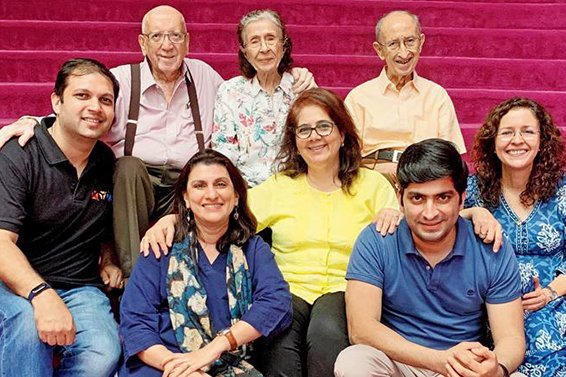Panja and Parsis: A nod to a great legacy
 A recent arm-wrestling competition at the Parsee Gymkhana provided a window into a storied past involving physical culture and strongmen
A recent arm-wrestling competition at the Parsee Gymkhana provided a window into a storied past involving physical culture and strongmenT he Pa rsis w ere a mong Mumbai’s, and India’s, first physical culturists. Part of the colonial elite, they adopted some very British passions, including cricket, motor rac ing, opera, and bodybuilding, which, at the turn of the last century, was closely allied with nationalism across the world.
In 1904, Eugen Sandow, the father of modern body building, visited Mumbaion the invitation of Dhunjibhai Bomanji, a rich Parsi businessman. The P r u s s i a n ‘s visit -his name has passed into various Indian languages as a synonym for strength -electrified the city, and catalysed the initiation of the Parsis into bodybuilding.
“Bomanji wanted the members of his community to be strong, likeSandow. Back then, we took pride in our strength and physique. We had uncles and fathers we could look up to,“ said Roozbeh Balsara, the secretary of theDadar Parsee Colony Gymkhana. “I myself grew up idolising Homi Jesia, (formermodel) Mehr Jesia’s father, who was a Mr India. We hope to revive the legacyslowly with events such as these.“
The momentum provided by Sandow’s visit helped create a cultureof bodybuilding among the Parsis, which lasted right until the early 1980s. Journals and books on Parsis from the 1920s and `30s feature glowing tributes to pahelwans of yore and their superhuman feats -Parsis of a certain vintage are still in awe of Tehemurasp Sarkari who “would tear a tel ephone directoryinto pieces with his bare hands“ -wealthy Parsis merchants funded gymnasi ums across the city; and they were often atop the podium at Mr Bombay, and often MrIndia, contests after Independence.Despite the presence of self-conscious young men with noticeably large forearms and biceps, the arm-wrestling competition, which featured entries from men, women and tweens, was more a jolly congregation than an intensely fought tourney. But the numberof participants it attracted came as a pleasant surprise to Rustom Jasoomoney,one of the organisers of the event and a member of the Parsee Gymkhana.
“We didn’t expect 65 people to participate, and some of them have come from Surat and Navsari,“ said Jasoomoney, who has been, for the lastfive years, trying to revive the Mr Zoroastrian contest. The competition, whichwas funded by the late Parsi philanthropist Naryman Dubash, was a regular feature every winter at Rustom Baug, in Byculla, in the noughties. It has not been held since 2011 due to lack of entries from young Parsi men.
“Bodybuilding is an expensive sport. Plus, you have to be patient and disciplined,“ said Balsara, who, along with Jasoomoney, regularlyholds power-lifting competitions at various baugs and colonies. “Powerlifting is more a show of strength, but it attracts more youngsters than bodybuilding, and that, I suppose, is one way to take our legacy forward.“
Saturday’s event at the Gymkhana saw little Percys lock palms with little Kaizads; matrons slam their opponents’ hand to the table; and the more serious contestants exhibit clenched facial muscles as they tried to getthe better of their rivals. Both Jasoomoney and Balsara said that it had all the makings of becoming an annual event.
The competition, which was organised by the Maharashtra Arm Wrestling association along with the Gymkhana, also featured some typical Parsi humour. As the contestants battled it out on a raised platform, someone from the audience commented, “We should have had Cyrus Mistry and Ratan Tata here as well. That would have been fun.“





